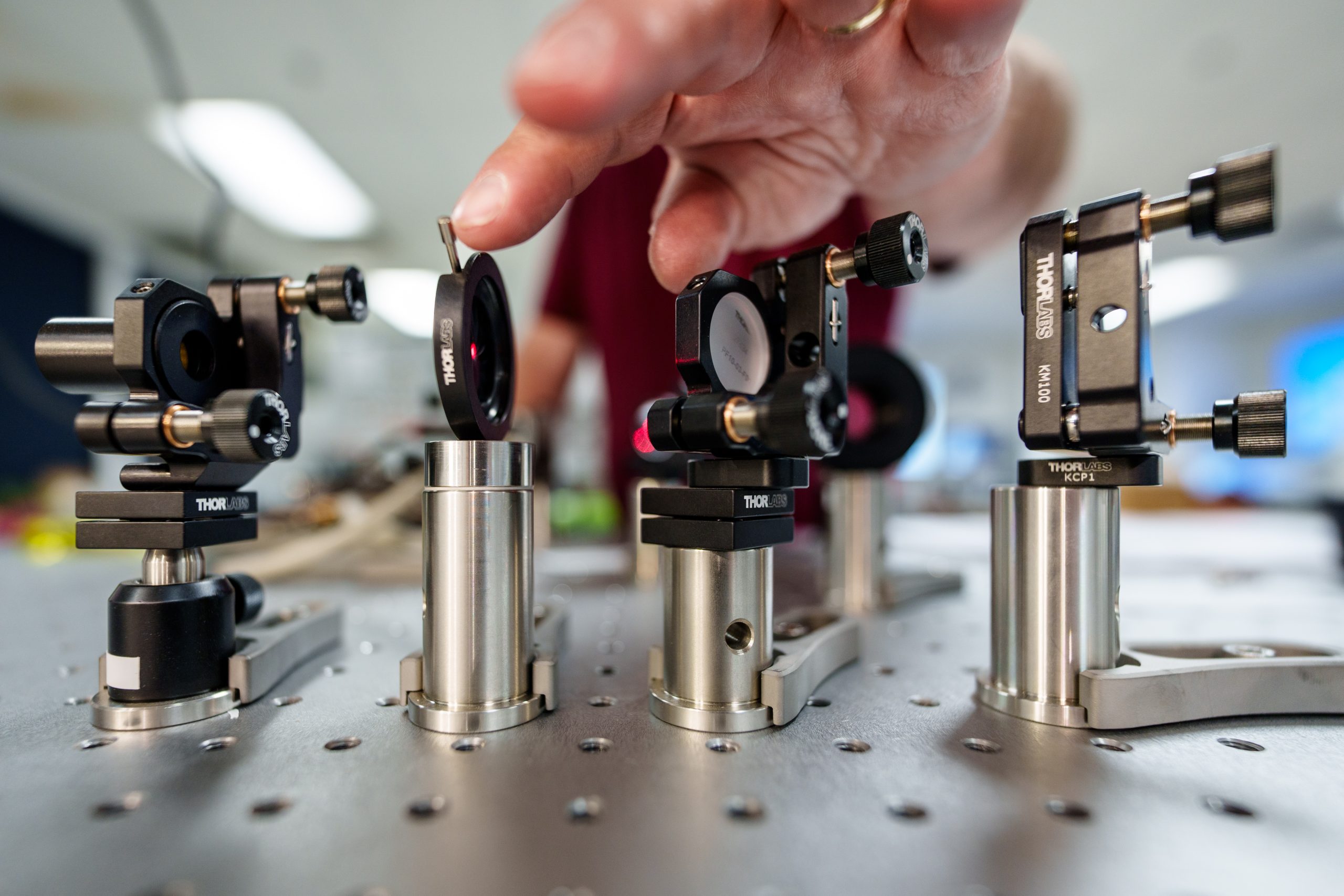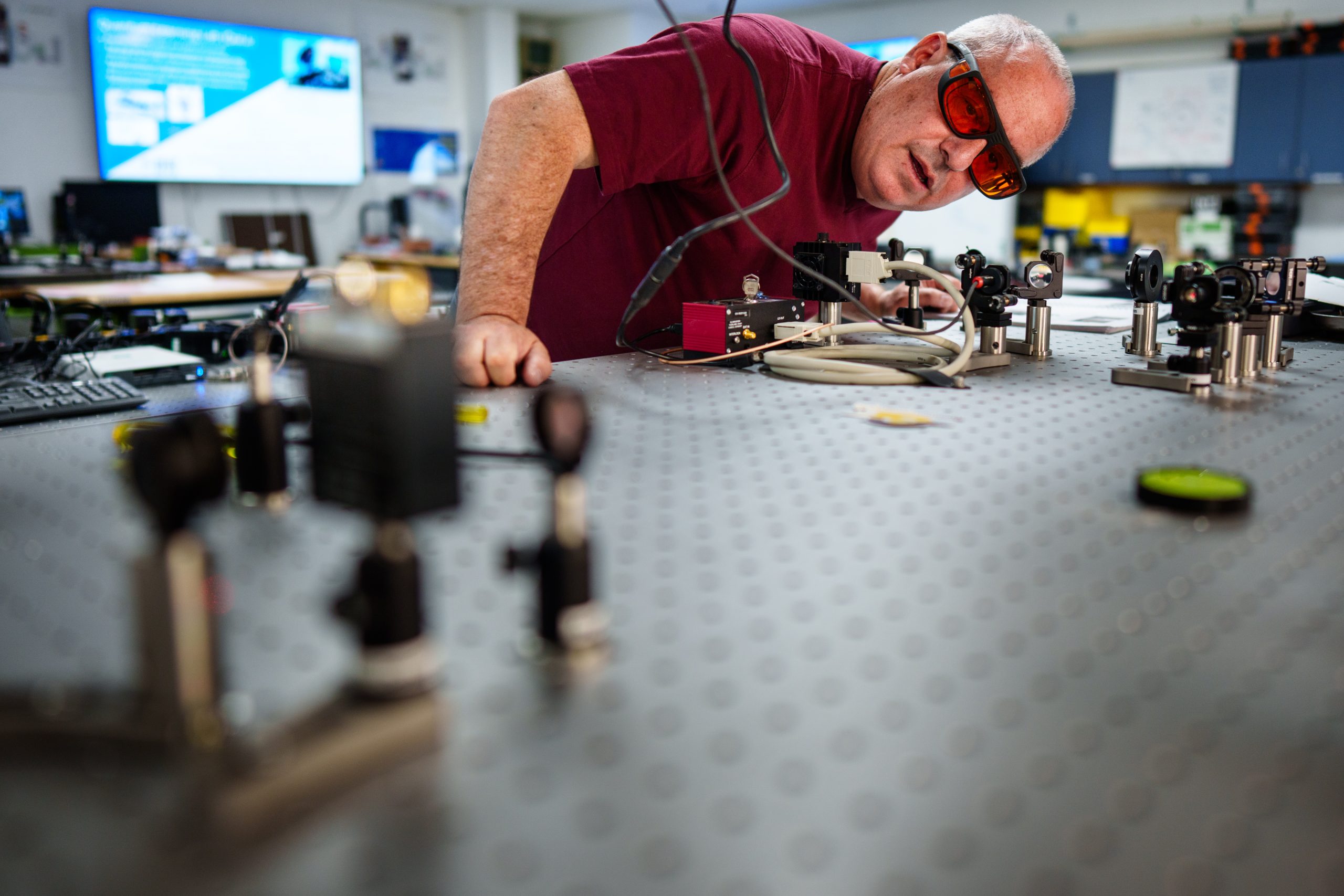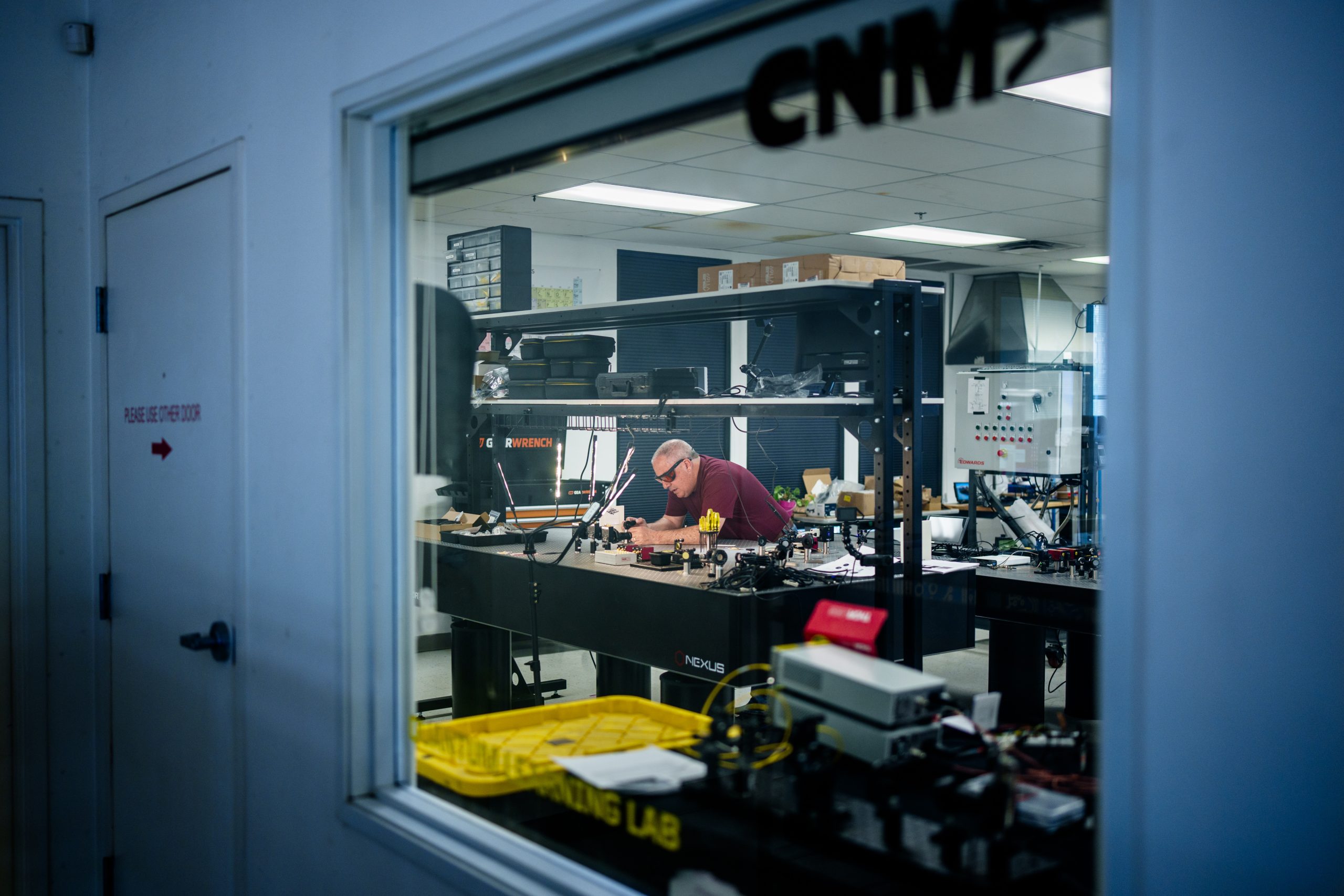ALBUQUERQUE, N.M. — The final touches are underway, including the installation of quantum lab equipment, as Central New Mexico Community College prepares to welcome students to its Quantum Technician Bootcamp. Students don’t need a math or science background to participate in the 10-week program.
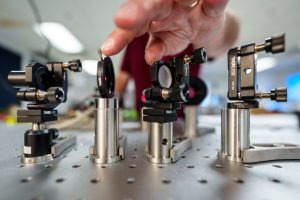
The project, a collaboration between Sandia National Laboratories and CNM, is designed to give students the hands-on skills necessary for job placement in the industry as quantum technicians. Sandia and CNM are partnering to build the lab and develop the curriculum for the 400-hour course through a Cooperative Research and Development Agreement. The first cohort will start in the fall.
“We’re leading the nation in building a quantum technician training program to get students job-ready in a semester-long bootcamp,” said Megan Ivory, a quantum scientist at Sandia. “Most students don’t get introduced to quantum until their junior or senior year of undergraduate school if they’re majoring in physics or engineering.”
Ivory is also one of the co-founders of QCaMP, which introduces quantum computing to high school students and teachers. That work will provide the foundation for the Quantum Technician Bootcamp curriculum.
“This is immersive training with hands-on experience,” said Brian Rashap, a professor spearheading the effort for CNM. “I would say 70% to 80% of the curriculum is hands-on experience.” He added that there are only a handful of quantum training programs for technicians across the country.
Training program roadmap
Sandia, a member of the Quantum Economic Development Consortium, helped lead a workshop at CNM in 2023 to delve deeper into the current needs for quantum technicians in the United States. The industry’s feedback indicated that a training program at an academic institution would be beneficial and ease some of its burden.
“We developed a report, and it provided recommendations for establishing training programs that can address some of the gaps identified,” said Jake Douglass, a business development specialist at Sandia. “The report was a big piece of getting our partners at CNM engaged to establish the Quantum Technician Bootcamp.”
Lab training space
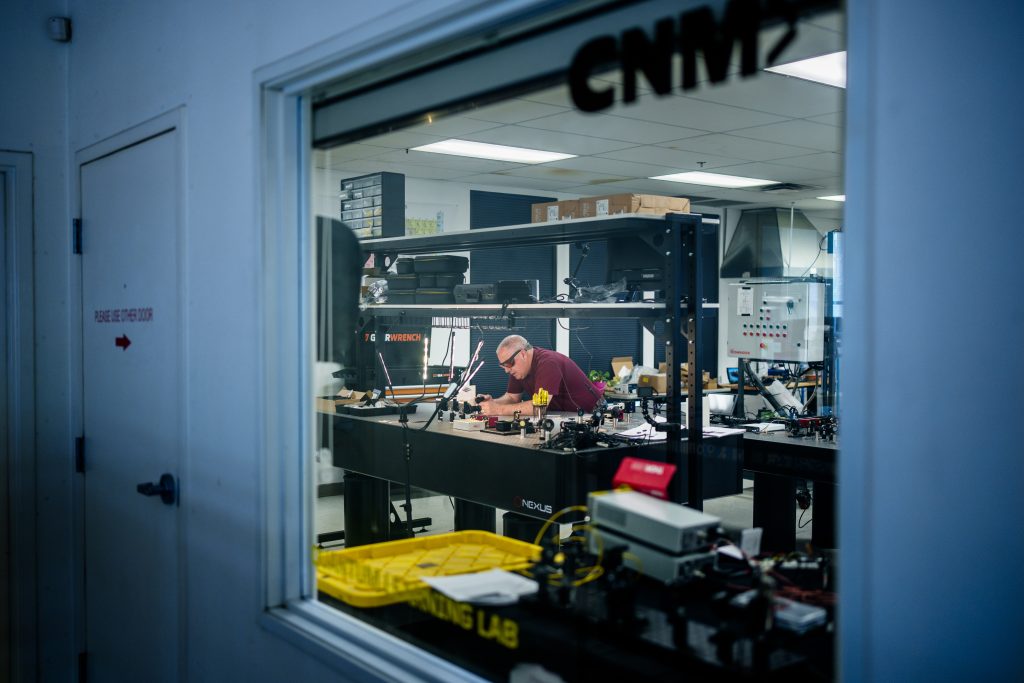
The lab space in downtown Albuquerque is co-located with CNM’s FUSE Makerspace to provide access to a variety of tools and capabilities that benefit quantum systems. The lab is set up with optical tables that host several experiments to train in-demand skills for technicians at quantum companies.
Students will learn about lasers and photonics. They will also learn how to measure and manipulate properties of light. With hands-on work to build optical setups, they will learn about quantum phenomena such as entanglement, where two quantum particles link together in a certain way, no matter how far apart they are in space.
High vacuum training systems, such as those found at Sandia’s Microelectronics Engineering and Science Applications complex and in many different quantum systems, have been installed to provide hands-on experience working in low-pressure environments.
Finally, the photonics, vacuum systems and quantum concepts all come together in a magneto-optical trap experiment where magnets and lasers are used to confine and cool atoms for use in quantum computing, quantum sensing and quantum communication.
“We’re building a laboratory that can address many of the skills needed at national laboratories and that industry partners said they would really value in a technician,” Ivory said.
Each Quantum Technician Bootcamp is expected to include about 12 students so they can work on each experiment in small groups and get hands-on experience.
Why now?
Having a trained workforce is key especially as quantum information science taking place in research and academic laboratories begins moving into industry due to its potential for commercialization.
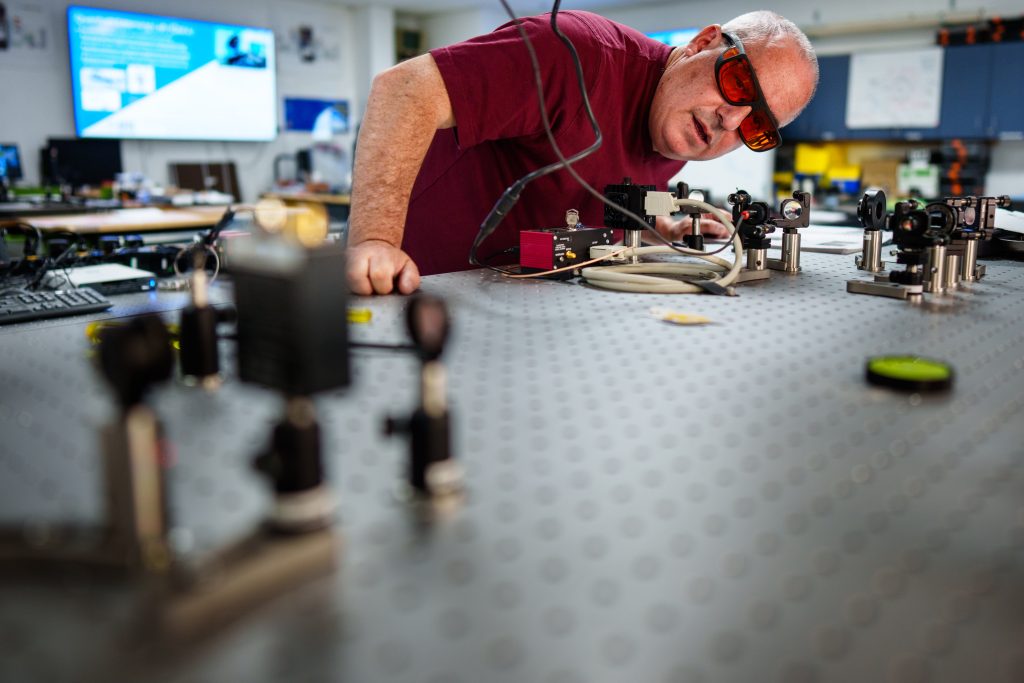
“Over the past decade, we’ve had a large increase in the number of quantum jobs. We don’t have enough people to fill the jobs,” Ivory explained. “We expect the demand is going to increase.”
Right now, about 57% of quantum jobs require a graduate degree, according to data from Lightcast, which analyzes the labor market. Over the next ten years, the number is expected to shrink to less than 30% as demand increases for bachelor’s level degrees or below.
“It’s important to start training programs now because it’s going to take us a while to develop that quantum workforce,” Rashap said. “Our program will provide training for quantum-adjacent fields such as semiconductor and solar cell manufacturing.”
Ivory added, “A lot of times you will see businesses and offices in places where there is a strong, trained workforce.” She hopes the workforce development programs being established here in New Mexico will result in new business and job opportunities in the coming years.
New Mexico’s role in quantum
New Mexico has a long history in the quantum field because of Sandia and Los Alamos national laboratories and the academic research institutions in the state.
Time lapse video shows Central New Mexico Community College’s Brian Rashap setting up a demonstration on an optical table. The college and Sandia National Laboratories are establishing a 10-week training program for quantum technicians. (Video by Craig Fritz)
“New Mexico has foundational quantum programs — in ways that almost no other region does — that have enabled the rest of the quantum ecosystem. Some of the largest startup quantum computing companies used Sandia-developed technologies,” Douglass said. “We’re focusing on giving New Mexicans opportunities to engage in this field by bringing industry here.”
Providing opportunities for Americans who want to be a part of the quantum industry is a big part of planning the Quantum Technician Bootcamp.
“We want to reduce the barriers to entry,” Rashap said. “You need to know what a computer mouse is, and you need to be able to divide using a calculator. If you can do those two things, we’re going to teach you everything else.”
Ready for bootcamp
The first Quantum Technician Bootcamp is scheduled in the fall, with plans to offer the program twice a year starting in 2026.
“Our partners at CNM have taken the lead to move this project forward in ways we couldn’t have done on our own,” Douglass said. “We’re incredibly excited to partner with CNM to launch this innovative program.” He added that Sandia is looking to partner with additional academic institutions in New Mexico for quantum programs.
Anyone interested in learning more about the program can click here.
Elevate Quantum, a consortium of more than 120 organizations, is one of the main funders of CNM’s Quantum Technician Bootcamp.

